IRON HORSE STATE PARK, near North Bend, Wash. - "Ready main! Ready belay! Pull them up!" bellowed Aaron Orr to the Soldiers positioned directly below him, awaiting orders to hoist up two Soldiers suspended 30 feet below the craggy cliff face. Soldiers holding the blue and orange cords representing the main and belay ropes began heaving both the rescuer and the rescued back up the mountain - all part of what professionals call high-angle rescue.
About 60 enlisted Soldiers from Madigan Army Medical Center spent a week in August at Iron Horse State Park near North Bend, Wash., learning the ins and outs of high-angle mountain rescue procedures to prepare hospital Soldier-medics for the rigors of saving lives in the violent terrain of Afghanistan. The 1,600-acre park is snuggled within the Cascade Mountains, and is a scenic rock-climbing venue for local hikers, climbers and recently, Madigan Soldiers. The rolling hills and steep drop-offs at Iron Horse offered the perfect atmosphere for Remote Medical International employees to provide an orientation to these Soldiers in high-altitude rescue training. Remote Medical International provides lessons in wilderness first aid and specializes in mountainous rescues that are more than an hour away from standardized medical care. "Every course we teach has no urban element to it," said Matthew Griffin, an account manager with RMI.
And Griffin would know what these Soldiers can expect if they are deployed to Afghanistan - he's been there three times. A former officer with the 2nd Battalion, 75th Rangers Regiment at Fort Lewis, Griffin has fought enemy insurgents deep within the hills and valleys that make up the majority of Afghanistan's landscape. "(Afghanistan) has the most violent terrain I have ever seen in my entire life," he said. According to Griffin, vertical rescue skills offered by RMI aren't traditionally taught in the medic school house at Fort Sam Houston in San Antonio. With many of the Afghanistan casualties occurring on uneven and elevated ground, Soldier-medics doing their jobs to save troops without proper training can become casualties themselves. "So that's why we are trying to teach and reinforce these skills - to save as many lives as possible," he said.
Orr, 28, from Olympia, Wash., also spoke about how dangerous Afghanistan's topography was during his deployment. Skinny roads side-winding through mountains filled with Soldiers maneuvering large vehicles or dismounted enemy chases across pock-marked terraces are just a couple of the challenges Soldier-medics might face in trying to do their jobs in the Middle Eastern country. This is why he is grateful Madigan and Fort Lewis are working together through the Medical Simulation Training Center to create a multi-million dollar training facility to prepare service members for upcoming deployments. The building will allow for scenarios like high-angle rescue training, moving patients through buildings or room-clearing, he added.
Staff Sgt. D.J. Hux, 29, from West Monroe, La., said that the high-angle rescue allowed Soldiers like him to work on the necessary combat skills that a hospital environment can't always keep current. "We spend so much time in the hospital; it's nice to get back into what we're trained to do," Hux said, who deployed to Iraq for 15 months from 2007 to 2009.
Master Sgt. Mark Branton, 46, from McComb, Miss., helped facilitate the week-long training for the Soldiers, sponsored by the Madigan Foundation. He plans on finding more avenues and opportunities to get as many Soldiers out of the medical center and into different training events to maintain their combat effectiveness when they deploy downrange. "Our Soldiers have a very important mission in the hospital, working in the Emergency Room, or up on the wards, but at their heart, they are combat medics," Branton said. Through training like this, "their combat medic skills won't perish or diminish."

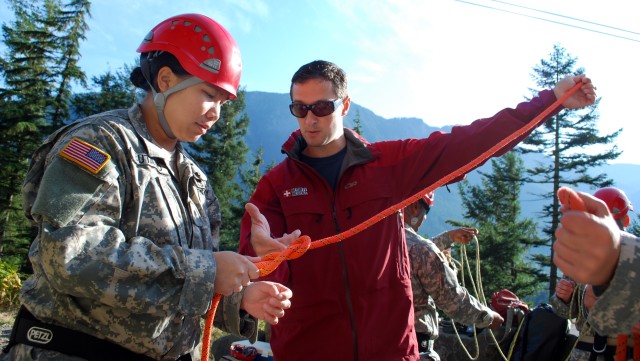
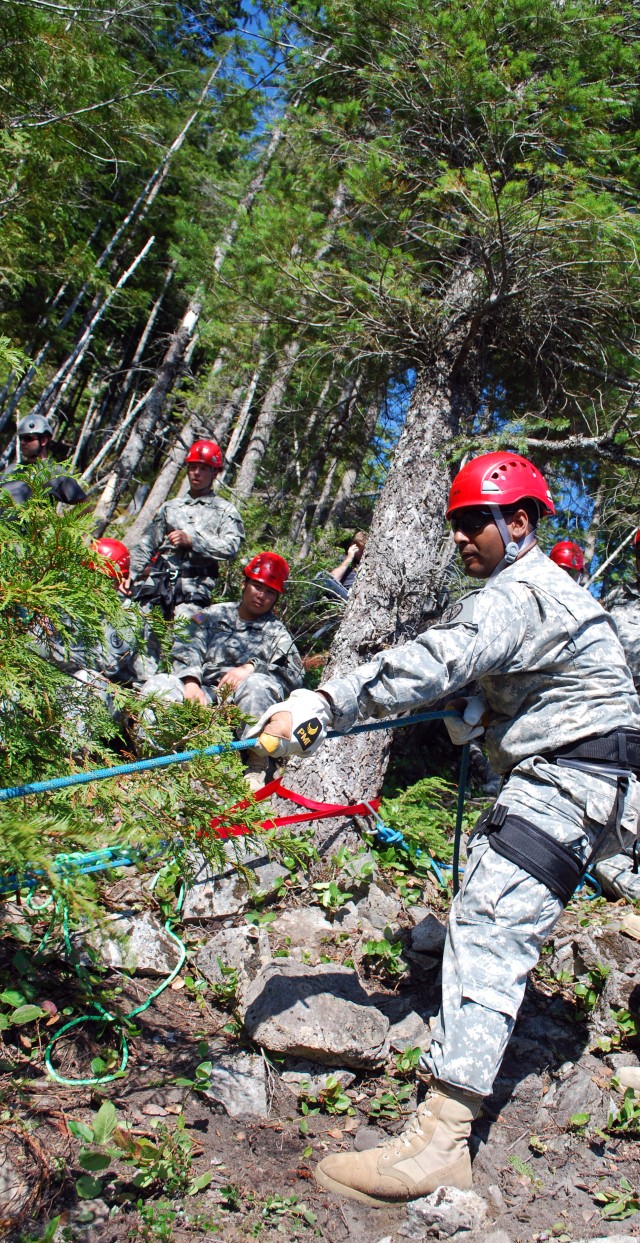
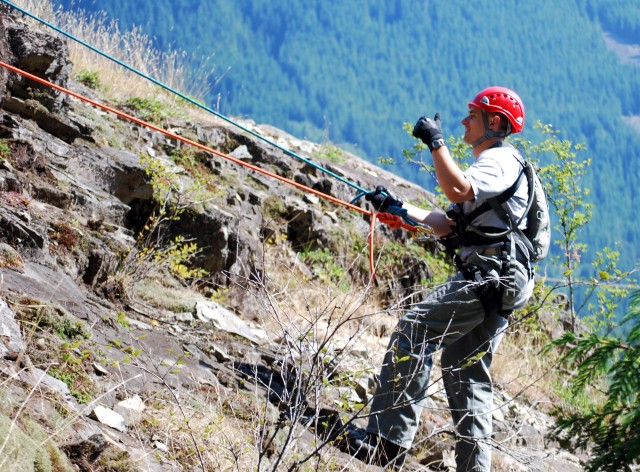
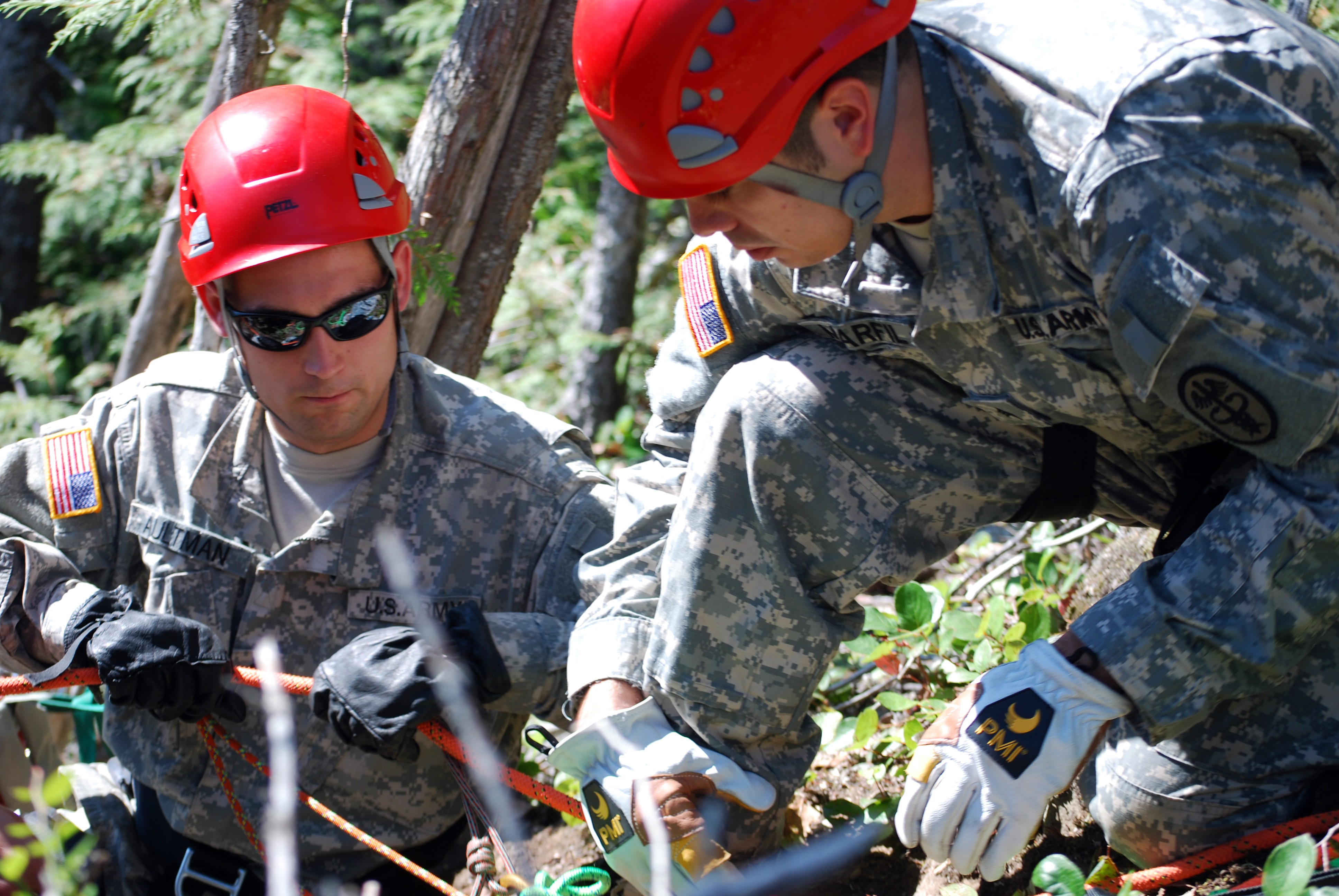
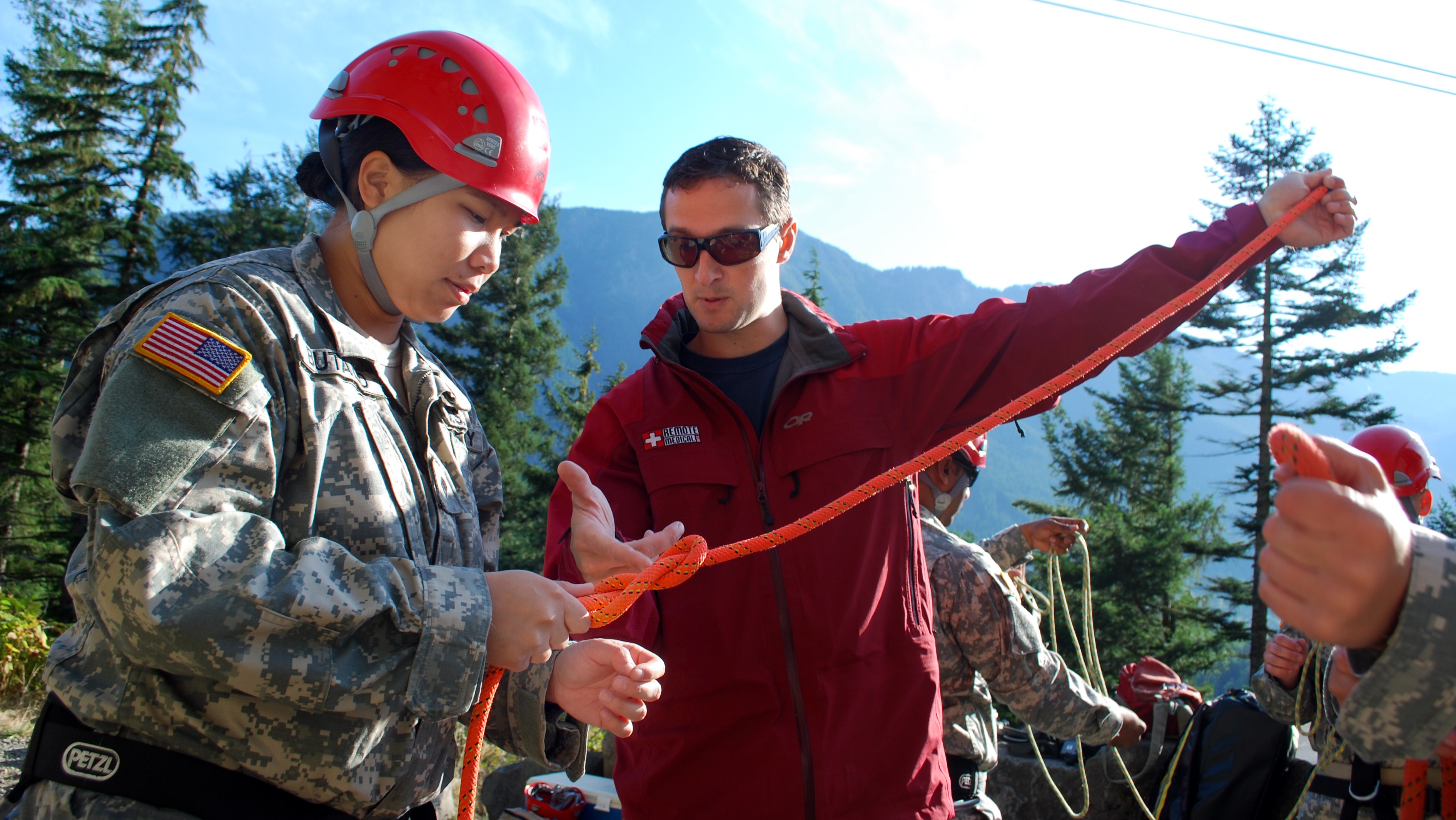
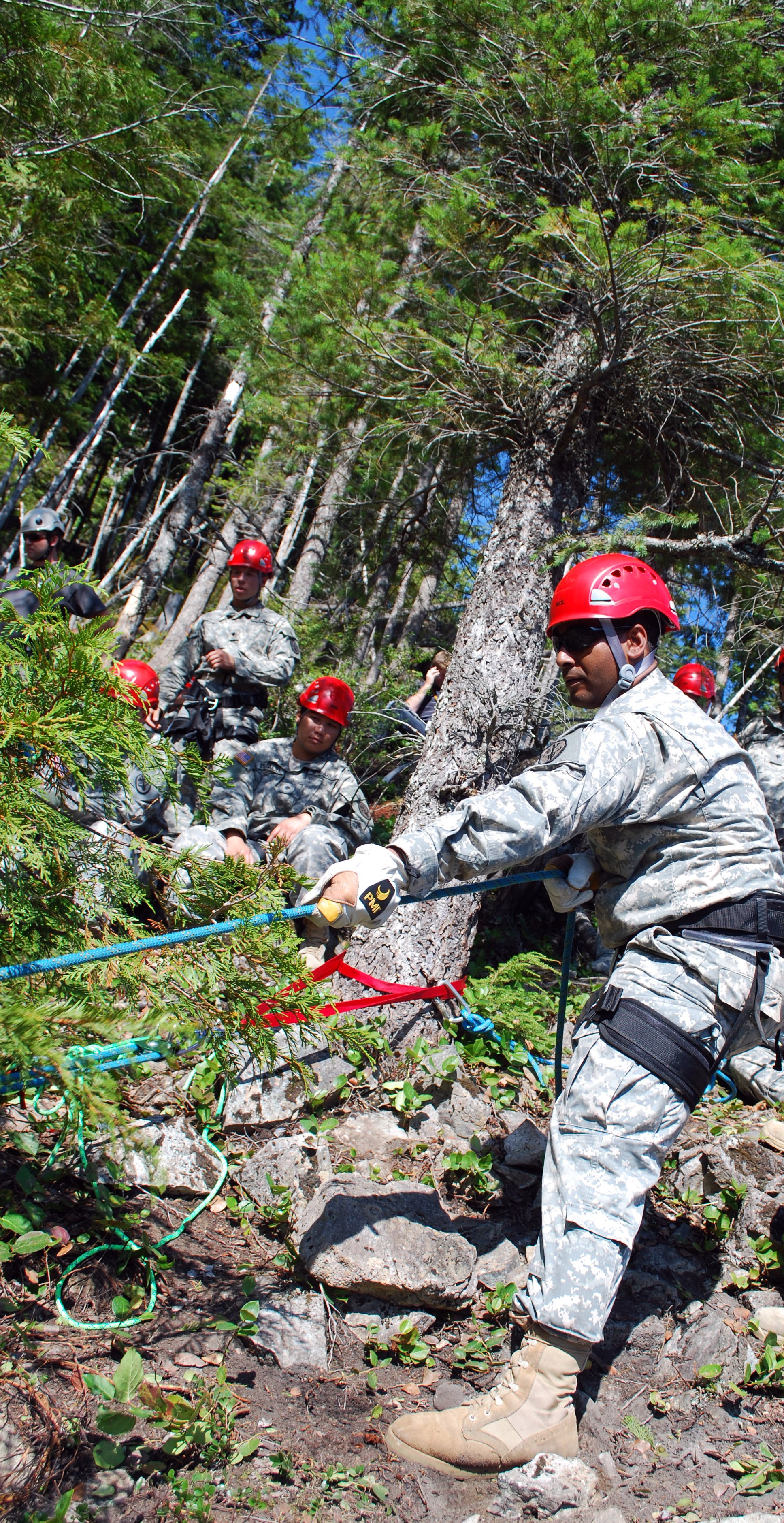
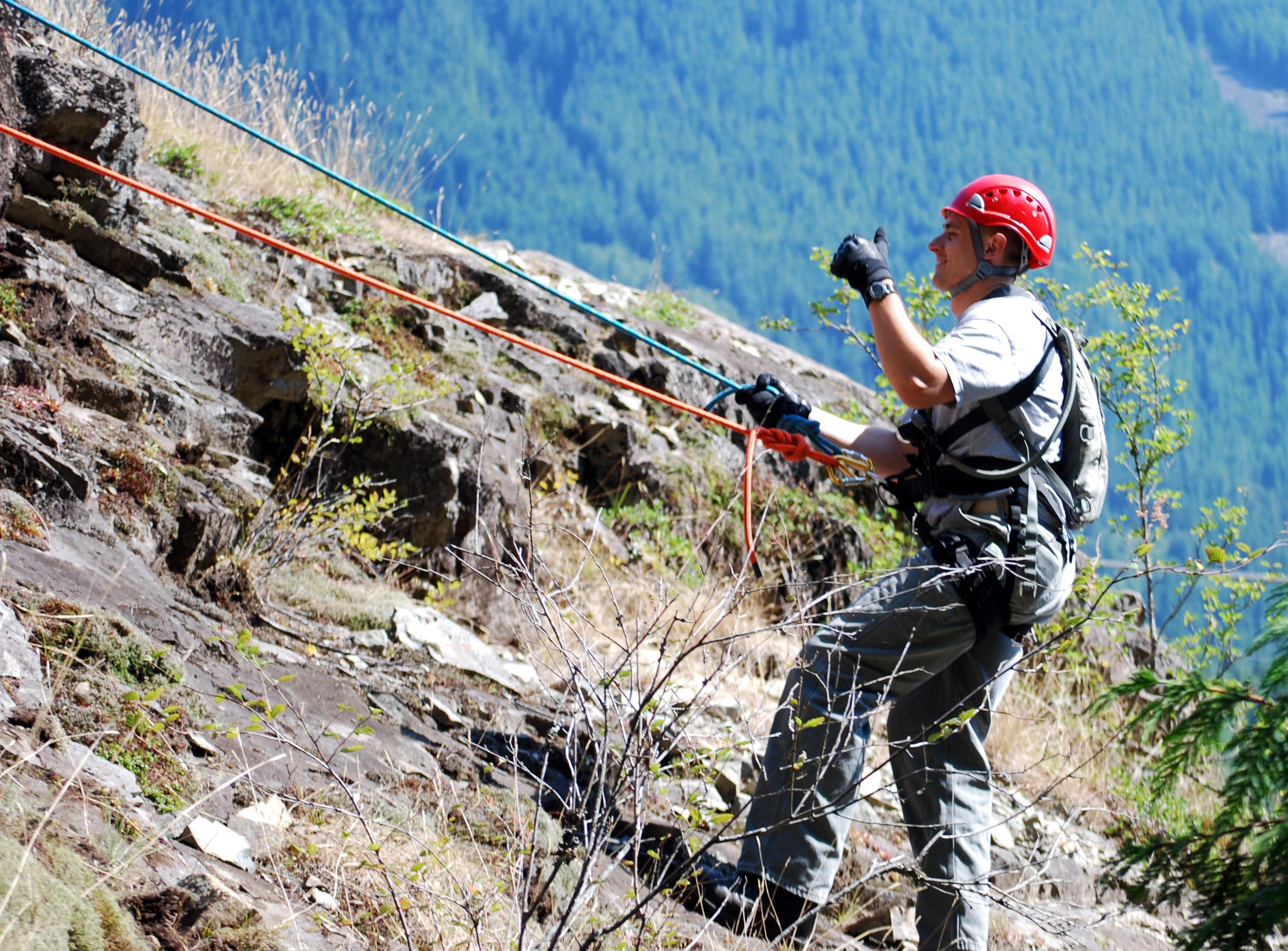
Social Sharing